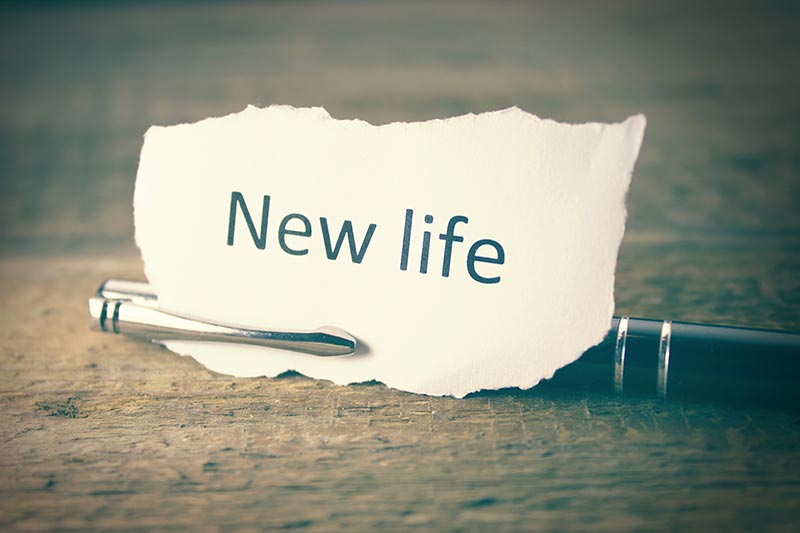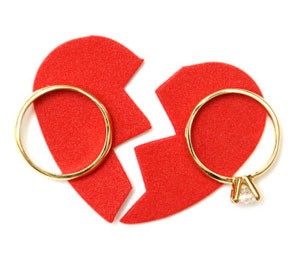“Bechaari (an Urdu word meaning “poor thing”), says the sixty-something lady with a sigh, as she mentions a twenty-something young girl.“She got divorced after her nikah, even before the rukhsati. (an Urdu word for the official ceremony).”
The other ladies present sigh audibly, cluck their tongues, and start shaking their heads slowly in unison. “Poor thing,” they all murmur under their breaths.
I know better than to blindly pity the said girl, because I know that in many cases, divorce provides a welcome relief for a husband or wife who is trapped in a life of marital misery and oppression.
Unlike some cultural and social norms prevalent in mainstream Muslim society nowadays, such as domestic violence, gossip, dishonesty in business dealings, and un-Islamic distribution of inheritance,- which have been accepted as part of life, divorce is not haram in Islam, even though it is highly disliked by Allah.
Even though divorce is painful and no one would want to go through it, the ones that happen on justified and Shari` (jurisprudentially legal) grounds provide a welcome (and often life-saving) release to married men or women who are otherwise trapped in chronically toxic marital relationships that are destroying not just their dunya (life), but also their Akhirah (hereafter).
I also know that several sahabiyat (female companions) of the Prophet (peace be upon him) got divorced during his life; that he approved of some of them; that the Prophet and his male companions themselves readily married divorcees and widows; and that even during the current era, some of my own divorced female friends have eventually gone on to marry again, living happily thenceforth.
So I refuse to shake my head with pity at the divorced girl whom the older ladies are unanimously labeling as a “poor thing”. I also internally dislike the fact that not a single one of these ladies pitied the ex-husband of this girl, even though his marriage ended too.
No one called him a “poor thing”.
Muslims’ Polarized Attitudes Towards Divorce
It is no secret that currently there are two somewhat polarized attitudes towards divorce that exist in our ummah.
One is of course the more secular, “me, myself, and I”-based approach towards it, which is particularly popular among humanists, liberals, and self-proclaimed feminists.

The person who holds this mindset regarding divorce tends to enter marriage primarily with the intention of acquiring personal benefits without making any sacrifices/compromises. They know what they want from marriage and they want to make sure they get it, sort of akin to the adage, “My way, or the highway”.
From day one, therefore, they are unwilling to ‘settle’ for anything less than what they want, or to compromise on their desires and wish-lists.
The harborers of this mindset hence consider divorce to be a valid and available option as soon as their marital relationship proves to become a bane instead of a boon for them. This could happen e.g. if it proves to be rocky in the initial few years, loses its steam, or hits its first substantial roadblock.
Consequently, they start to try for a divorce if their marriage doesn’t bring them what they thought it would for the first, say, 5-10 years.
As for the set of ‘benefits’ for which such people seek to get married, well, for women, this usually includes love, romance, financial security, sexual pleasure, emotional compatibility, offspring, and their own separate home. For a man, it mostly includes frequent and gratifying sexual relations, multiple offspring, and ‘demigod-like’ respect, servitude, and obedience from his wife.
When they do not get one of the things in their wish-list that they want from their marriage, they ‘jump the gun’ and desire a divorce so that they can quickly move on to their next marriage in pursuit of the same.
Now for the other polarized view that many Muslims hold about divorce, especially those dwelling in Eastern cultures/communities. It is the one that considers divorce something totally unthinkable, scandalous, taboo, and out-of-the-question, even if the married person’s mental health or physical safety/life is in danger.
Such Muslims consider divorce to be the biggest setback, misfortune and personal failure that a person, especially a woman, can encounter in life.
The harborers of this mindset also consider being divorced to be a sign of being unfortunate or “cursed” viz. (henceforth) carrying a bad omen or ‘bura naseeb’ (ill fate). They resultantly often socially marginalize the divorcee, especially at weddings, and consider them to be an unfortunate, lonely, unhappy individual.
Many older women who harbor this mindset outright ‘blame’ only the female divorcee unequivocally for the divorce; for not being ‘patient’ enough to endure the tribulations of her marriage quietly, willingly sustaining any mental and/or physical abuse from her cruel husband ‘for the sake of the children’.
As I hinted at the start, this latter scenario usually applies more to divorced women than men, and is also dished out to them by other women in society.
The prevalent attitude is: a man can live alone in life as a singleton without losing his self-respect/social prestige or suffering in any way (even if he falls into a plethora of ills as a result, such as masturbation, drinking/partying, pornography/drug addiction, and/or purchased sex) – but a woman cannot.
A woman should stay married – to any man -, even if it kills her.
Literally.
Marriage to a Divorced or Widowed Woman – Not For My Son
Virgin. Young. Fair. Pretty.
This is the standard set of physical requirements for a Muslim wife, across the length and breadth of our ummah,  which a man and his parents desire to acquire when he seeks to get married. Of course, according to this list of criteria, the divorcee or widow doesn’t even make it across the first point.
which a man and his parents desire to acquire when he seeks to get married. Of course, according to this list of criteria, the divorcee or widow doesn’t even make it across the first point.
Since a Muslim man holds almost totalitarian authority over his wife in a marriage, it is a tad understandable why parents of single daughters hesitate to marry their girls to a divorcee or widower, perhaps fearing the repercussions of his past ‘baggage’ from adversely affecting their daughter, since she will have to be totally subservient to him in the marriage.
Nevertheless, it is not uncommon to see many a young, virgin girl acquiescently marrying a divorcee or widower in order to please/obey her parents, or to garner for herself some of the benefits of marriage that I’ve mentioned above, primarily financial security.
It is the converse case,- that of a single, hitherto unwed man marrying a divorced or widowed woman, which is the absolutely unthinkable option in our ummah!
Despite the fact that Prophet Muhammad ﷺ married only divorcees and widows, with the exception of A’ishah bint Abi Bakr, very few Muslim men of the ummah today – as well as their parents – are willing to even consider this option, unless they are divorcees or widowers themselves.
Conclusion: Keep an Open Mind
Once we remove the veil of unfair social/cultural prejudice from our eyes, it won’t be long before we see many positives in reviving the sunnah of marrying divorcees or window(er)s.
A divorcee has weathered the pain of hardship and loss, because of which they have lower expectations from marriage. They possess the priceless wealth of experience that teaches them valuable lessons from their past mistakes, and are often willing to work harder, and sacrifice more, to make their marriage work this time round.
Our divorced and widowed brothers and sisters also possess more wisdom, humility and patience as a result of enduring pain, and will thus tend to appreciate much more, the smaller blessings in life, once they get married again.
Sure, they come with baggage. But who doesn’t?
Which one of us does NOT have a few skeletons in our closets, which we hope that Allah will keep hidden and undiscovered forever, from not just our current spouses, but also the rest of the world?
First published: June 2014
